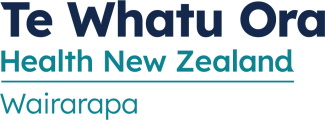Wairarapa DHB is one of the first in the country to join the national roll-out of the bowel screening programme, and it wants to make sure that those who are sent the free test complete it.
The executive leader of the DHB’s Māori Health Team, Jason Kerehi, notes that this is the first national cancer screening programme for both men and women.
Watch the video HERE
“It’s important that people know that bowel cancer effects men and women, and that they understand the screening process.
“This programme is for people aged 60 to 74: that’s the age group where it impacts on the most people. Once you are invited to take part, you do the test every two years.
“We’ve had a big team working to promote the bowel screening programme, including doctors and nurses, our GP liaison, Māori Health Team and Pacific Health Team.”
Māori Health Coordinator, Janeen Cross, says they’ve been engaging with a number of different rōpū, such as the Māori Women’s Welfare League, Kaumatua Council, and other Māori working within the community.
She says, “It’s important that people have a common understanding, that they’re getting one consistent message; the same kōrero going out to our whānau.”
Janeen says one of the scary things about bowel cancer is that people can have no symptoms, and that’s why taking part in the screening programme will be life-saving for many people.
“We want people not to be afraid of doing the test. You do it in the privacy of your own home, and there are avenues for help and advice - whether that’s the 0800 number (0800 924 432), your GP, or talking to one of us in the Māori Health Team. Support is available throughout the screening process, from when you receive your invitation letter, through to any treatment that may be required.
“We’re taking the whole whānau approach. Some people might not want to engage - but when you’re talking about being there for your tamariki and your mokopuna, it sends a different message to people – “this journey is bigger than you”.
“We are talking about people owning this. We want our whānau to be really active in their health journeys, and be well; we just want our whānau to be well.”

